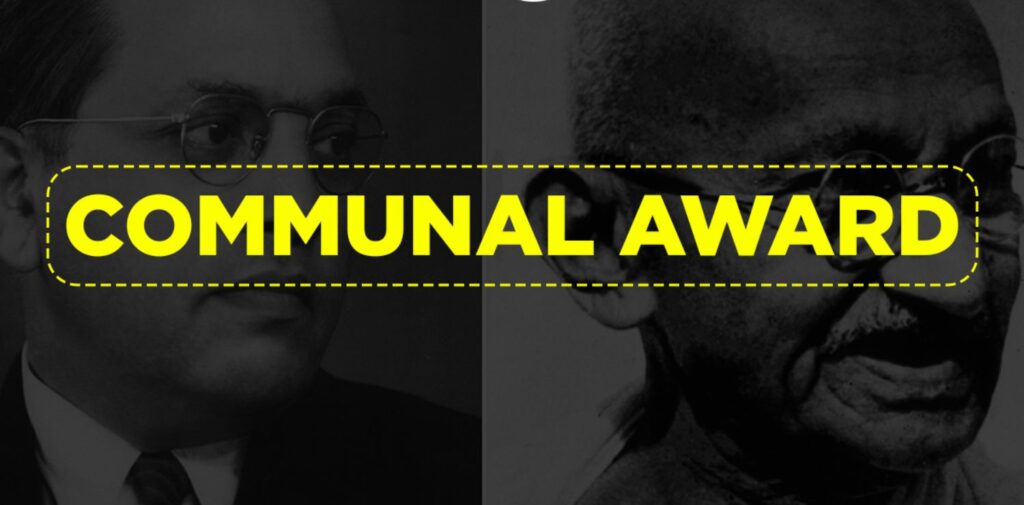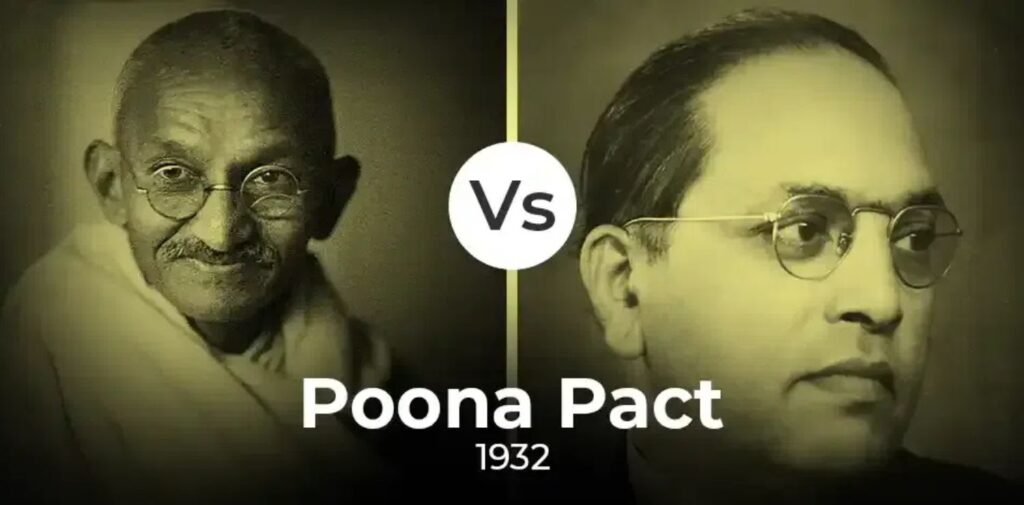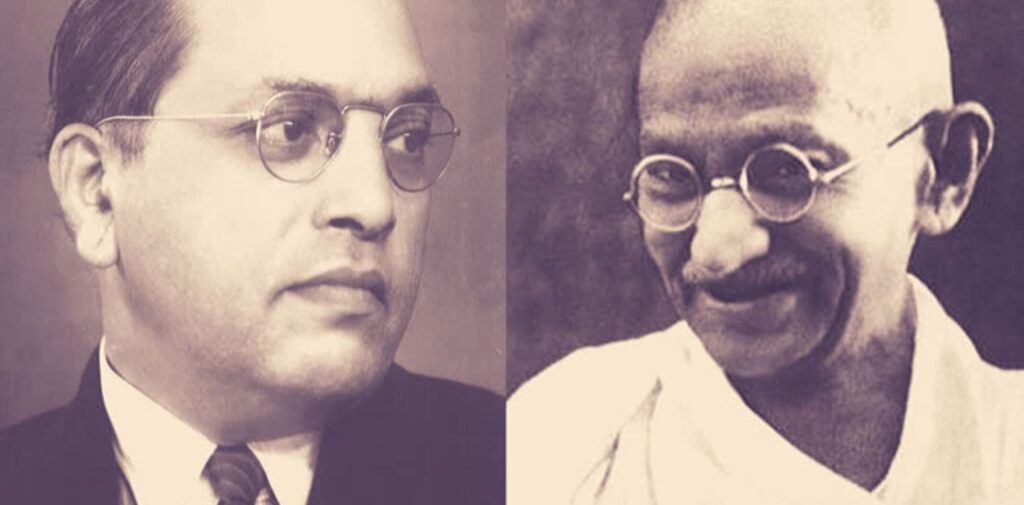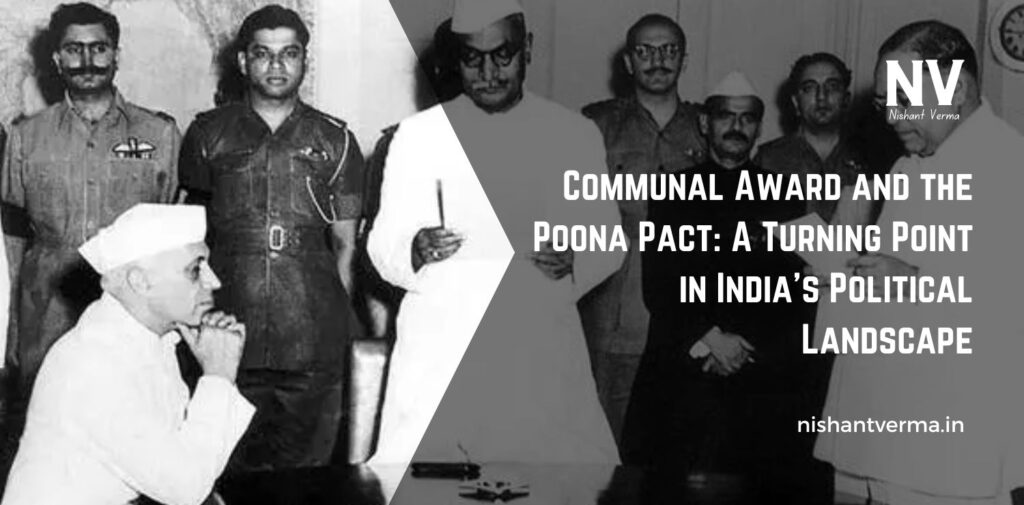India’s struggle for independence was not just about freedom from British rule. It was also about solving many internal issues that divided the country, especially the differences between its various communities, including Hindus, Muslims, Sikhs, and the “Untouchables” (later called Scheduled Castes). Among the many significant events in this journey were the Communal Award and the Poona Pact, two events that had a deep impact on India’s political landscape. Let’s take a look at what happened during these two important moments, and how they changed the political scene in India.
What was the Communal Award?
To understand the Communal Award, we first need to know about the British Government’s role in India at the time. India was under British rule, and the British were trying to balance the demands of different groups in Indian society. They knew that the country’s large population was divided into many religious and social communities. The British realized that if they wanted to keep control of India, they needed to deal with these divisions carefully.
In 1932, the British Prime Minister, Ramsay MacDonald, introduced a proposal known as the Communal Award. This was a policy that aimed to give separate political representation to different communities in India, including Hindus, Muslims, Sikhs, and even the Untouchables (those who were treated as low castes and faced discrimination).
Under this award, each of these communities would be given separate electorates. This meant that, for example, Muslims could only elect Muslim representatives, and Hindus could only elect Hindu representatives. The idea behind this was to make sure that all groups had a voice in the government. However, the Communal Award was controversial for several reasons, and it caused tension in the country.

The Role of the Untouchables in the Communal Award
One of the biggest points of contention in the Communal Award was the issue of the Untouchables, also called Harijans (a term used by Mahatma Gandhi). The British decision to give them separate electorates meant that the Untouchables would be able to elect their own leaders, without interference from higher castes. While this sounded like a positive step for the Untouchables, it was not something that everyone agreed with.
Mahatma Gandhi, the leader of India’s independence movement, strongly opposed the idea of separate electorates for the Untouchables. Gandhi believed that creating a separate political space for the Untouchables would further divide Indian society. He wanted the Untouchables to be treated as equal members of society and to have the same rights as other Hindus, not to be isolated in a separate community.
Gandhi’s opposition to the Communal Award led to a fast unto death, a form of protest where Gandhi stopped eating to show his commitment to the cause.
The Poona Pact: A Solution to the Crisis
Gandhi’s fast made the situation even more intense. The British, seeing the unrest it caused, decided that a solution was needed. Gandhi was firmly against separate electorates for the Untouchables, but the leaders of the Untouchable community, led by Dr. B.R. Ambedkar, felt that separate representation was necessary to protect their rights. Ambedkar was a strong advocate for the rights of the Untouchables and wanted to ensure that they had a voice in the government.
After much discussion and pressure, Gandhi and Ambedkar finally reached an agreement in September 1932. This agreement was called the Poona Pact.
The Poona Pact was a historic agreement that resolved the issue of separate electorates for the Untouchables. Under this pact, the Untouchables (now called Scheduled Castes) were given reserved seats in the legislature, but they would vote along with the general Hindu electorate. In simple terms, they would not have separate electorates but would still have special representation in the political system.
The Poona Pact was a compromise between Gandhi and Ambedkar. Gandhi agreed to allow reserved seats for the Untouchables, and in return, Ambedkar agreed that they would not have separate electorates. This agreement was a victory for Gandhi’s vision of unity among Hindus, but it was also a win for Ambedkar, as it guaranteed political representation for the Untouchables.

The Impact of the Communal Award and the Poona Pact on India’s Politics
The Communal Award and the Poona Pact had a lasting impact on the political landscape of India.
- Separate Electorates and Divisions: The Communal Award, by creating separate electorates, highlighted the deep divisions within Indian society. The Award showed that the British were willing to divide the country along religious lines. It created a sense of separation between different communities and made it clear that different groups had different political needs.
- Role of Gandhi and Ambedkar: The Poona Pact showed the leadership of both Gandhi and Ambedkar. Gandhi, as the leader of the Hindu community, worked to keep Hindus united, even though he faced strong opposition from within his own community. Ambedkar, as the leader of the Untouchables, fought for the rights of the marginalized and ensured that they had a political voice. Both leaders showed the importance of negotiations and compromise in solving India’s internal problems.
- Growth of Political Awareness: These events raised political awareness among the Indian population. People began to realize the importance of political representation, especially for those who had been historically oppressed. The issue of the Untouchables and their rights became a major part of India’s independence movement. Ambedkar’s role in the Poona Pact made him a hero for millions of Untouchables across India, and he would go on to play a crucial role in drafting India’s Constitution after independence.
- Unity and Division: While the Poona Pact was a step towards unity, it also showed how complex and challenging it was to build a united India. India was made up of different religious and social groups, and each group had its own needs and demands. The Poona Pact helped avoid further division, but it did not completely solve the challenges of unity in a diverse country like India. The discussions and compromises that followed in the years leading to independence would focus on how to balance these divisions and create a fair and just society.

Conclusion
The Communal Award and the Poona Pact were turning points in India’s political history. The Communal Award showed how the British used division as a tool to maintain control over India. At the same time, the Poona Pact demonstrated the power of dialogue and compromise in solving issues of political representation. Gandhi and Ambedkar’s efforts to work together, despite their differences, played a vital role in shaping India’s political future.
These events highlighted the importance of unity in diversity, a theme that continues to be central to India’s identity. While the Communal Award deepened divisions, the Poona Pact helped find a way to bridge those gaps, setting the stage for India’s long journey toward independence and equality for all its citizens. The lessons learned from these events are still relevant today, as India continues to work towards a more inclusive and just society




